If you are reading this article this afternoon (13th September 2017) it is quite possible that I am at this very moment giving my talk about the challenges and rewards of blogging to a live audience at ENTO’17 in Newcastle 🙂 In my talk, I began by explaining how it was that I became a fan of social media, first Twitter and then as a blogger. I have already written about my conversion in an earlier post and how much I feel that social media adds to academic life, so I will not bore you with the whole story again.
Suffice it to say pre-Twitter and pre-blogging I was writing a lot, but mainly to the wrong audience.
The second part of my talk attempted to answer the following questions. As an academic why should you blog? What are the benefits? What are the risks? What are the challenges? Is it part of your day job? More importantly, how can you convince your university or research institute that you should spend office time blogging? What follows is the ‘script’ of my talk.
I started blogging because I felt that the way I was trying to get the importance and wonder of entomology across to non-entomologists was too limited. I was not interacting with enough people outside the field, I needed to widen the scope of my activities. Yes I was going into schools and talking to natural history societies, gardening clubs and on occasions youth groups and organisations like the Women’s Institute or the U3A, but I was only talking to tens of people. I wanted (needed) to talk to hundreds, even thousands of people to feel that I had a chance of getting my message across that the future of the natural world lay in an understanding of the invertebrate world and not of the “large charismatic mega-fauna”. Hence my leap into the world of Twitter, and certainly with a following of over 5000, I am now potentially talking to thousands of people, according to my analytics my Tweets earn nearly 5 000 impressions a day. The trouble with Tweets is that by their very nature they are transient and flow down the Twitter timeline to obscurity at a tremendous rate. They are also not easily reference-able. A blog on the other hand, if hosted on a reputable site, is as permanent as anything is these days, and as each post has a unique address, also has the advantage of being able to be linked to and found by search engines. It was thus a logical step to launch a blog which is what I did, and Don’t Forget the Roundabouts was born.
A blog is born
I did not take this step lightly. As the point of starting a blog was to make an impact, it could not be anonymous. The content of the blog needed the backing of my professional reputation to hopefully give it the stamp of reliability and authority. I was, and still am, putting my reputation on the line every time I post a blog article. It was thus with some sense of trepidation that I went public. Writing a blog is a whole different thing to submitting a paper to a journal where you are subjected to peer review and your readership is pretty much limited to people who are very similar to yourself and whom have access to scientific journals. Anyone with access to the internet can find, read and comment on a blog. A scary thought. I felt it was worth it and still do. There were two other reasons besides my wish to increase the range of my outreach and to increase the level of interactions, that made the idea of starting a blog seem logical.
Reasons to start a blog
As a teenager I loved English, both language and literature (I still do, I have a personal library of over 10 000 books) and even had aspirations of becoming a novelist. As those of us who have been around for a longish time will know, as you become more successful at getting grants and increasing the size of your research group, you get further and further away from the bench and/or field and do more and more ‘editing’ and commenting on other people’s writing. In my case this had resulted in me finding it more and more daunting when faced with a blank sheet of paper or an empty word processing document. I saw the prospect of producing blog articles as a way of getting back into the habit of starting from scratch and also of learning a more relaxed and accessible style ready for my retirement plans of writing “popular”* entomology books. Finally, I thought it might be fun, my late father often voiced the opinion (especially when I was a teenager) that I “loved the sound of my own voice”. Writing a blog does indeed give me the opportunity to sound off now and then and I make all sorts of fantastic discoveries when I am doing the background research for an article. I freely confess, I enjoy writing my blog immensely. It really is great fun.
Is it all positive? Of course there are challenges, it would be foolish to deny it. Finding the time to manage a blog can be a problem. I am not retired, I have a full-time academic position, running a research group, editing journals, reviewing papers and grant proposals, writing and co-writing scientific papers, sitting on committees, and of course teaching students, both undergraduates and postgraduates. Writing a blog is yet another call on my time, but one I am happy to heed. I do blog writing and research at work
Enough to put you off?
and at home. My contract does actually have a paragraph that mentions outreach so I feel justified in doing this. Another challenge that might seem daunting is that of coming up with topics to write about. Before I went public, I wrote five articles and filled an A4 piece of paper with potential topics that I thought would be fun to write about and of interest to others. In reality I found that just living life provides topics enough to allow me to produce an article every couple of weeks. There is always something that sparks an idea for a potential blog article, be it a scientific paper I read, something in the news or even as has happened twice now, a piece of fiction.
A challenge to some bloggers is that of motivation. Unless you happen to be paid to be a blogger or make a living from it, then it can be hard to make the time and take the effort to write something regularly. Luckily for me, I am somewhat competitive, even when the only other entrant in the race is myself. I set a target of two articles a month but regularly find myself doing three, just to make sure that I am ahead of schedule and also I get quite a buzz on ‘publication’ day when the daily view total shows a spike in response to your activity 🙂
The publication day spike
I have to admit that the fact that WordPress generates a number of statistics that you can track and compare, gives me plenty of motivation 🙂
The other challenge which I alluded to is the slightly anxious feeling that you get every time you publish an article. Firstly as I mentioned earlier, because I am blogging as me, I really, really want what I say to be correct. I find that I do as much, if not more background reading for a blog article as I do for a scientific paper. I definitely do a lot more historical reading for the blog articles because it is very interesting and I also find it fun to delve back to the origins of a topic. If I had not written an article about aphid symbionts I would never have discovered that Thomas Henry Huxley had worked on aphids which made me even impressed with him than before. The other times that I feel anxious are when I publish something that Is not strictly within my field but moe of an opinion piece. When I got upset about he British Ecological Society (BES) and their conference catering policy I wrote rather an angry, although, at least in my opinion, a well-argued article. I was somewhat hesitant in pressing the publish button, but went ahead and did so, and then sat back waiting for the angry responses from vegetarians and vegans. To my surprise the expected lambasting did not materialise and I received several complimentary comments and emails.
Having a go at the British Ecological Society https://simonleather.wordpress.com/2015/12/17/meeating-issues-with-the-british-ecological-society-why-i-boycotted-the-2015-annual-meeting/
The BES were even kind enough to publish a slightly edited version in their Bulletin. In some ways I have been slightly disappointed that this, and other articles dealing with ‘controversial’ viewpoints have not generated more critical responses, although I guess I should count my blessings and not angle for brickbats.
Enough about the challenges, what about the benefits? Have I made an impact? As far as I am concerned the answer is a resounding YES. I am read all around the world and I am pretty certain that my 175 blog posts have been read more than my 230 scientific papers.
A worldwide reach – I have been read by someone in almost every country in the world
I am particularly proud of having one of my blog posts referenced in a book about preparing for PhD vivas (Smith, 2013).
This post made an impact – https://simonleather.wordpress.com/2013/05/07/are-phd-examiners-really-ogres/
I have also been invited by magazines and societies to convert some of my blog posts into articles for publications aimed at reaching more general audiences in an accessible and informative way.
Making an impact and bringing entomology to a wider audience
More conventionally, some of my blog posts have gone mainstream and appeared in scientific journals, a bit of reverse outreach 😊
Some of my blog posts that have made it into the scientific literature
Something that may put people off blogging is the possibility that their employer may not see a benefit in their activity and only not encourage but perhaps even discourage, their staff from becoming bloggers. It was to counter this perception that a group of like-minded bloggers and I got together to present an analysis of the value and impact of blogging in ecology. It was an interesting and rewarding exercise** and last week we were rewarded by having our paper accepted for publication in a prestigious journal.
Squaring the circle – a mainstream paper about the benefits of blogging for scientists
Proof that this was a fun project to collaborate on and write about
I think that there is a very strong case for more scientists to become bloggers, but if you do decide to take up the challenge and become a blogger you should first ask yourself exactly what it is you hope to get from it. Is it just for pleasure, is it for outreach, to practice writing or to draw attention to yourself to increase interactions with others in your disciplines?
Three simple rules to ease you into the blogosphere
Whatever your reasons there are things that you can do to make your blog a success and help you overcome the challenges I have outlined above. First, be well prepared have some articles in reserve, especially when you launch your blog. It is also a good idea to post at regular intervals, not necessarily often. Having a ‘deadline’ will help you with your writing and time management and people will start to expect to hear from and may even become subscribers to your blog. It is also important not to get downhearted or impatient. It takes time to build an audience. Blogs grow at different rates depending on a number of factors including blogging frequency and audience interaction (Saunders et al., 2017).
A frequent poster
My blog, regular but not as frequent as Jeff Ollerton’s Biodiversity Blog
Finally, it is important to do as much as possible to publicise your blog, use the tag function to help search engines direct people to your blog and I would urge you to join Twitter and do remember to use all the publicise buttons that your blog host provides.
I look forward to seeing a plethora of new entomology and ecology blogs. Happy Blogging.
References
Saunders, M.E., Duffy, M.A., Heard, S.B., Kosmala, M., Leather, S.R., McGlynn, T.P., Ollerton, J. & Parachnowitsch, A.L. (2017) Bringing ecology blogging into the scientific fold: measuring the reach and impact of science community blogs. Royal Society Open Science,
Smith, P.H. (2013) The PhD Viva, MacMillan Education, UK.
*assuming anyone wants to read them of course 🙂
**there will of course be a blog about this in the near future.





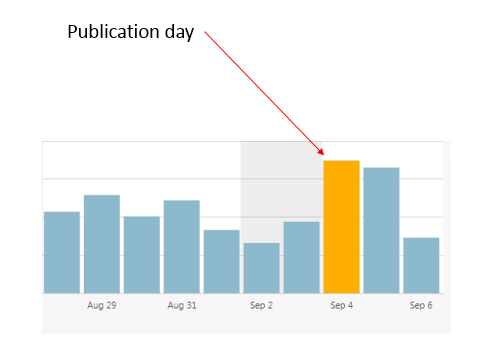
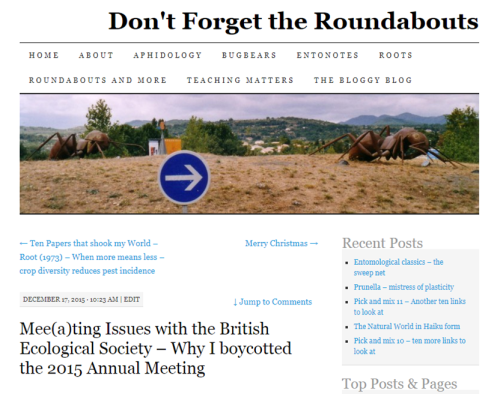


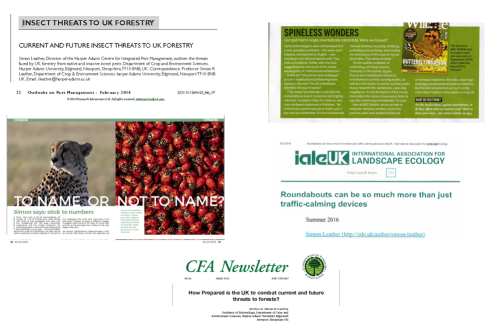



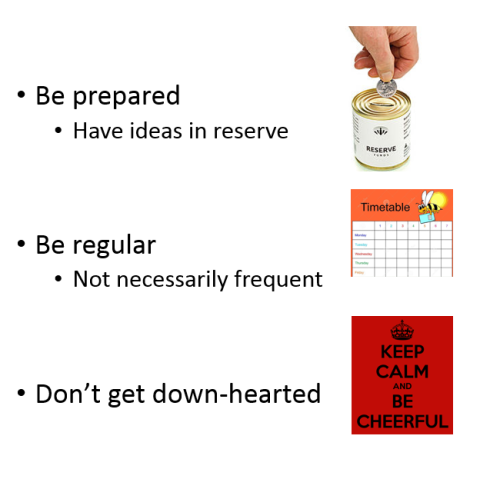

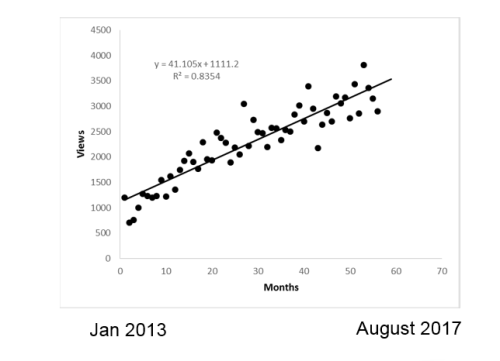

Thanks for this interesting summary of blogging as an academic. I agree with all you say. One thing I find unpredictable and suprising is the popularity of posts (based on hits).
LikeLiked by 1 person
Thanks for your efforts-you have reached an interested but ignorant reader, but less so now
rgds
Jim Kirby
LikeLike
You have exposed the darkness in a good-natured and patient manner and proceeded to enlighten us who are far from the reaches of academic entomology. Keep spreading the word! Amelia
LikeLiked by 1 person
Thank you, much appreciated
LikeLiked by 1 person
Pingback: The Roundabout Review 2017 | Don't Forget the Roundabouts